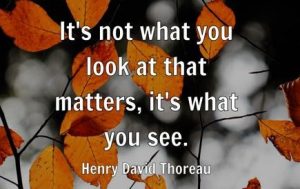《自律養生實踐家之旅355》 健康,你真的在意?

我曾經記錄過一位肝癌病患前來求助的故事,那是我的學員轉介過來的,原則上我不接觸重病患者,尤其是罹患末期重症的人。然而,現實裡,因病而來、急需救命的,依然是大多數。
我一再強調「未雨綢繆」,但人性往往如此:聽歸聽,卻要見棺材才肯落淚。這位朋友在我面前斬釘截鐵的說:「那就死馬當活馬醫吧」,幾個月後,我聽聞他已經不在了。
救急,總是帶著不得已的悲涼。急救只是把命暫時留住。你若站在醫院急診室門口一整天,會忍不住問自己:「人到底在幹什麼?」。
是的,有許多人因此想起預防保健,也有人願意提早把身子顧好。健身房於是盛行,減重課程也如火如荼。只是,幾乎沒有人把目光放在更根本的「飲食頻率」上。
碰到斷食,總像遇見毒蛇猛獸。聽到身邊有人在斷食,腦海浮現的總是:「一定還有別的方法吧」。
我也聽過因接受化療、放療而傾家蕩產的故事,該抵押的都抵押了,能借的都借了,只為了「把命留下來」。
然而命,不該等到重病纏身才來挽救;命,現在就能留、現在就該留。
可惜在沒有病的時候,健康總被當作成本:所有保養方式都有花費,能省就省,能不花錢就不花。
反而把時間花在耗損身體的事上:能吃就多吃,能不睡就不睡,能透支就盡量透支。
從學習態度的輕忽,到執行深度的不足,眼前都是「還不嚴重之前」的算計,都是「還有時間可以豪賭」的精打細算。
於是,兩個問題不時在我心中迴盪:
「你真的關心自己的健康嗎?」
「你真的珍惜自己的生命嗎?」
我看到許多無法逆轉的案例,他們的共同點幾乎都是:過去總說「能省就省」、「以後再說」。
想著要健康,做的卻都是反健康;想學養生,卻從來沒給身體真正需要的。因為飯局更重要,交情更重要,甚至保住飯碗比什麼都重要。
《錢買不到的東西》裡談到正義與金錢的角力,這也是我在工作中最深的感受:在不少人心裡,錢幾乎能買到一切,包括健康。
我常受邀去特殊團體演講,卻強烈感受到功利凌駕一切的氛圍。對他們來說,聽講只是例行公事,付了車馬費就算交代。
在商業世界裡,計算機上的數字才是重點,月底會計報表的數字才是關鍵。銷售健康,自然也不例外,因為在他們的邏輯裡,健康只是附屬品。
因此,我不喜歡在這些場合談他們做不到的養生觀念,也提醒學員不必刻意推廣斷食。因為斷食無法推銷,它只屬於那些真心渴望存活、願意自己游上岸的人。
當聽到學員被「勒令」不能斷食,不論是宗教理由,還是「醫療至上」的理由,我總觀察學員的反應。
若你被不懂的人說服,那代表你自己也還沒真正懂。
我所謂的「懂」,是意願的累積,是動機的強化。斷食是一場個人的修行,與旁人無關。若你把不能繼續或失敗的原因歸咎於別人,那放棄只是必然的結局。
有一位學員,熱心幫同事與鄰居送酵素,最後卻抱怨送貨太累。從未教過要「送貨」的我,只想問他:「究竟是朋友的方便比較重要,還是朋友認識真相比較重要?」。
心中的價值排序,只有自己最清楚。你在意的是人情,還是朋友的健康?你更在意的是錢,還是自己的健康?你是否願意把餘生的品質與長度,放在口袋深度之上?
這些問題,只有你自己能回答。
所以,我再次問你:
你真的在意自己的健康嗎?真的?
你真的願意為健康付出一切努力嗎?真的?
(關鍵不在於你看到什麼,而在於你看到的是什麼。(決定意義的,不是眼前的景象,而是你心中的看見。))
Do You Really Care About Your Health?
I once recorded the story of a liver cancer patient who came seeking help, referred by one of my students. In principle, I do not work with patients who are gravely ill, especially those at the terminal stage. Yet in reality, most who come are exactly those—already sick, desperate for a last chance.
I have long emphasized the need to “prepare before the storm,” yet human nature tends to be the same: people listen but do not act, and only when the coffin is in sight do the tears finally fall. I still recall this man saying resolutely in front of me, “Let’s treat the dead horse as if it were alive.” A few months later, I heard he had passed away.
Emergency care always carries a sorrowful sense of helplessness. At best, it only buys time, a temporary lease on life. If you stand at the entrance of an emergency room for a whole day, you cannot help but ask yourself: “What are people really doing with their lives?”
Yes, many are reminded of preventive care this way; some even make the effort to take care of themselves earlier. Gyms thrive, weight-loss programs flourish. Yet almost no one pays attention to something more fundamental—the rhythm of eating itself.
When it comes to fasting, people react as if confronted with a poisonous snake or a wild beast. If they hear someone nearby is fasting, the first thought that surfaces is always: “There must be some other way, right?”
—
I have also heard stories of families bankrupted by chemotherapy and radiation: mortgages exhausted, loans taken to the limit, all for the hope of “holding on to life.”
But life should not be rescued only after disease has taken hold. Life can be preserved now, it should be preserved now.
Sadly, when people are not yet ill, health is treated as a cost. Every method of upkeep is weighed against money: save if you can, avoid spending if at all possible. Yet time and energy are freely spent on things that deplete the body: eat excessively, skip sleep, overdraw one’s strength.
From casual attitudes toward learning, to shallow execution in practice, everything is calculated under the excuse of “It’s not serious yet.” The mindset is always “There’s still time to gamble with.”
Thus, two questions echo constantly in my mind:
Do you really care about your health?
Do you truly cherish your life?
—
I have seen many irreversible cases. Their common refrain was always: “Save where you can. Deal with it later.”
They claimed they wanted health, yet did everything that undermined it. They claimed they wanted to learn wellness, yet never gave their bodies what they truly needed. Business dinners were more important. Social ties were more important. Even keeping their job security was deemed more important than their own survival.
In What Money Can’t Buy, Michael Sandel speaks of the struggle between justice and money. I feel the same in my work: for many people, money seems capable of buying everything—including health.
I am often invited to lecture to special groups, but the utilitarian atmosphere is overwhelming. For them, listening is a formality, the travel stipend a box ticked. In the world of commerce, only the numbers on the calculator matter, only the numbers on the month-end report count. Health too becomes a commodity to be sold, because in their logic, it is merely an accessory.
That is why I avoid speaking of wellness concepts they cannot practice, and I remind my students never to force the promotion of fasting. Fasting cannot be sold. It belongs only to those who genuinely long to survive and are willing to swim ashore by their own will.
—
When I hear that students have been “forbidden” to fast—whether on religious grounds or in the name of “medical authority”—I always observe their reaction.
If you can be persuaded by those who do not understand, it only proves you yourself do not yet understand.
By “understand,” I mean the accumulation of willpower, the strengthening of motivation. Fasting is an individual practice, a personal discipline. It has nothing to do with others. If you blame others for your inability to continue or your failure to persist, then giving up is simply inevitable.
One student once eagerly delivered enzyme drinks to colleagues and neighbors, but later complained the deliveries were exhausting. I had never taught anyone to “deliver products.” So I asked: “Which is more important—your friends’ convenience, or your friends truly learning the truth?”
The order of values is something only you can answer for yourself. Do you care more about social courtesy, or your friends’ health? Do you care more about money, or your own health? Are you willing to place the quality and length of your remaining life above the depth of your pockets?
—
These questions only you can answer.
So I will ask again:
Do you really care about your health? Really?
Are you truly willing to give everything for it? Really?


